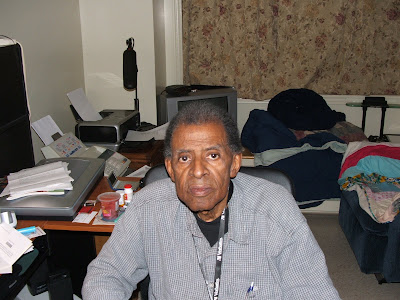
Chemotherapy - “Zero Tolerance for Errors”
Patient safety comes first. It is at the forefront in the minds and hearts of health providers, health administrators, patients and their families. In fact, the importance of patient safety can be traced back to the Hippocratic Oath historically taken by doctors who swear to the ethical practice of medicine. Believed to have been written by Hippocrates in the 5th Century B.C., First do no harm is phrase well known and understood by most. It is the guiding principle for all who work in health care.
While ensuring patient safety in all health settings is a priority, mistakes sometimes occur. When mistakes involve chemotherapy, the result can be serious, even fatal.
“Chemotherapy is toxic,” says Larry Broadfield, Manager of CCNS’s Provincial Systemic Therapy Program. “It needs to be to kill the cancer cells. But, in the wrong dosage or delivery, it can cause a number of very serious and unexpected side effects.”
Canadians faced the ultimate tragedy four years ago when an Alberta woman died after receiving the wrong dose of chemotherapy. “The Alberta Cancer Board’s courageous and honest response to this tragedy helped us all realize that while we are human and mistakes will happen, there are processes we can put in place to prevent and minimize the likelihood of errors, particularly fatal errors, from happening,” says Larry.
Just how significant the error rate is in the delivery of chemotherapy remains unclear, although one recent study of three U.S. outpatient cancer treatment centres found that 7 per cent of adults and 19 per cent of children taking chemotherapy drugs were inadvertently given the wrong dose or experienced other mistakes involving their medications.
One thing is certain. The tragedy that occurred in Alberta served as a warning signal to the rest of the country. Decisive and immediate action is necessary to ensure the cancer system has the appropriate safeguards in place to protect patient safety and minimize the chance for error. For these reasons, the Canadian Association of Provincial Cancer Agencies (CAPCA) has formed a national committee, the Chemotherapy Safety Working Group, to explore the issue – and identify areas for improvement and enhancement. CAPCA is expected to release its findings from their first research study on chemotherapy safety this fall.
In Nova Scotia, in addition to participating on CAPCA’s national committee, local hospitals across the province are reviewing how chemotherapy is delivered and exploring possible changes to improve the safety of chemotherapy delivery.
As the provincial program responsible for enabling safe, high quality care, Cancer Care Nova Scotia is providing leadership and working to make practices more safe. In 2008, the first pharmacy technicians graduated from CCNS’s Online Chemotherapy Preparation Program. This groundbreaking initiative, a partnership with the Nova Scotia Community College, helped to standardize methods used for chemotherapy preparation. Since its introduction, almost 100 per cent of pharmacy technicians have completed the program. A process is also in place to ensure new pharmacy technicians entering the workforce complete the program.
“Until CCNS developed this program, there was no common approach to training pharmacy technicians on chemotherapy preparation,” says Larry. “Today pharmacy technicians have the skills and standards training they need to confidently and safely prepare chemotherapy for patients.” The Chemotherapy Preparation Program is just one in a series of skill-based education programs CCNS is developing and delivering to provide health professionals with the necessary skills to ensure safe, high quality care.
For example, work is also underway to develop and deliver chemotherapy education to nurses and pharmacists across the province. These programs will begin to be offered later this year.
Other work includes the development and implementation of improved standards for the safe delivery of chemotherapy in hospitals and chemotherapy units. Following introduction and implementation of standards, CCNS also plans to work with district health authorities to implement an appropriate monitoring process to ensure standards are being followed.
“It’s all about having the right checks and balances in place for all players involved in chemotherapy delivery to minimize as much as possible the opportunity for error,” says Larry.
“Ultimately, the number of mistakes don’t matter. One is too many. As health professionals, patients, families and a health system, we have a zero tolerance for errors involving chemotherapy.”



